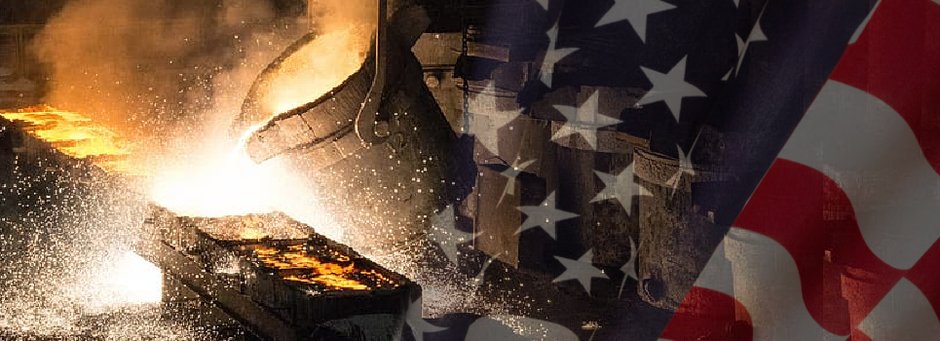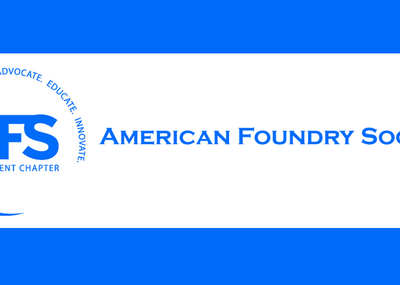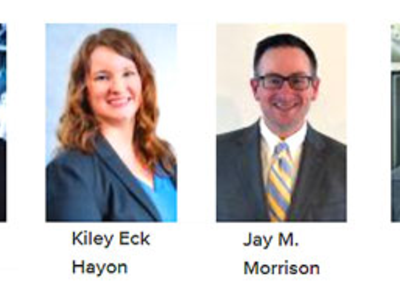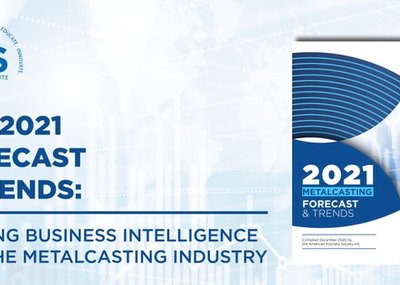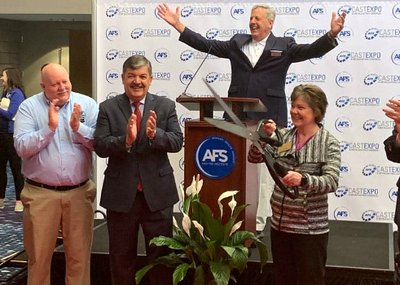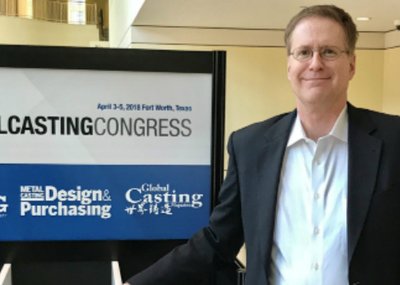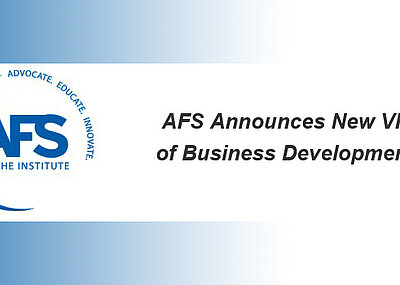After 2019, which was in line with an excellent 2018, American foundries suffered a considerable setback, like the rest of the world, due to the Covid-19 pandemic, with the US being hit particularly hard. In spite of this, according to Doug Kurkul, CEO of the American Foundry Society, the US trade association, gradual recovery is expected already in the early months of 2021, even though it will reasonably take more than a year to return to pre-crisis production levels.
What impact did the pandemic have on American foundries in terms of production and sales in the first half of 2020?
Foundry sales were improving in early 2020, when the pandemic hit. When government began to shut down the economy, AFS urged the Governors of a number of states to ensure that foundries were able to remain open as “essential industries.” In most cases, these efforts were successful. The auto industry voluntarily shut down for almost two months, and some of their suppliers briefly shut down.
AFS is projecting a 20 percent decline in casting sales in 2020.
Some sectors (such as castings for national defense and municipal work) will outperform that average, while others may underperform it. How was the emergency managed by companies? How many foundries (if any) have been forced to close completely?
AFS is very proud of the great work that foundries and suppliers have done to keep producing vitally important castings and supplies, while protecting the health and safety of employees.
Remaining open required a great deal of attention to health guidelines; and in many cases, changing production procedures. Some foundries with only one shift went to two shifts, to put more distance between employees. New cleaning protocols were established. Many foundries made changes to lunch rooms and locker rooms to protect workers.
During the spring, the initial challenges for foundries were to ensure they had the legal authority to stay open, quickly learn about the best practices related to Covid-19, and to secure adequate supplies of PPE. Our federal government approved a loan program that assisted many foundries. With AFS backing, the program was refined later in the summer. During the summer, some foundries began to experience renewed difficulty in finding enough employees. All the while, foundries kept their focus on keeping employees safe.
The other key issue for some foundries has been securing enough orders. It will be important for the economy to experience a prompt, strong recovery, and AFS is working in Washington, D.C. to advocate public policies that encourage that outcome.
Since January, AFS is aware of 10 foundry closures. This is only slightly above the normal pace of closures, as the industry gradually continues to consolidate in North America, as it already has in parts of Europe. Overall, metalcasting has a $110.5 billion impact on the U.S. economy, including direct and indirect economic activity.
What are the target markets that have reduced orders to foundries the most?
Most target markets saw reduced new orders as the economy entered a recession. The exceptions have been mostly government purchasers – for military, aerospace, and infrastructure. We are seeing signs of improving orders at some foundries and trust that this is an optimistic sign for the coming months.
What was the impact of the emergency on employment in the sector?
Foundry employment is down modestly, but we anticipate gradual increases as the economy recovers.
In a promising signal, the U.S. economy added 1.4 million new jobs in August, exceeding economists’ expectations.
What have you done as AFS to support companies in recent months?
During a time like 2020, the industry needs AFS and its programs more than ever. When Metalcasting Congress was cancelled, we opted to present nearly all of the technical and management education sessions by Zoom, free of charge to all members, over several months. Since April 1, AFS has presented more than 30 free webinars. A list can be found at AFSINC.ORG.
The AFS Institute has transitioned classroom courses to a virtual format with great success, as a complement to simulated e-learning. Metalcasters appreciate being able to take foundry courses without having to travel. AFS presented a virtual conference about sandcasting and additive manufacturing; and will present another one on workplace safety.
Of course, AFS is continuing to do all of the things it has always done, such as provide technical assistance, publish Modern Casting magazine, and plan programs for 2021.
In Europe, issues related to the environment and the so-called “Green new deal” are extremely actual and will impose major changes on industries. Is something like this also happening in the USA or are there critical environmental issues in this period for foundries?
The U.S. has a vast array of environmental laws and rules, which have dramatically improved the quality of our water, soil and air since the 1970s. Industry invests tremendous amounts of time and money to protect the environment, implement recycling programs, and comply with complex rules. Since regulators often do not have a deep understanding of foundry operations, AFS maintains productive channels of communication with them, offering practical information about challenges and cost-effective approaches for achieving shared environmental goals.
Europe and parts of Asia have been more aggressive about mandating vehicle electrification. We are moving in the same direction, but the pace and scope of the transition remains to be seen. The November election results will have an impact, as will the choices made by consumers. What will remain constant, however, is the commitment that foundries make to recycling and protecting the environment, while producing quality, highly engineered metal castings.
What are the prospects for the foundry industry in the coming months?
The year 2021 will mark the 125th anniversary of AFS.
The North American foundry industry has survived the pandemic of 1919, the Great Depression, World War II, the 2008 recession, and other challenges, and it will emerge triumphant from current challenges, as well. AFS members know that given the depth of this downturn, it will likely take more than one year to get back to previous highs in casting tonnage and sales. But a gradual recovery is expected. Highly engineered castings are critical to our manufacturing base and standard of living worldwide.
We are also excited about continued new advances, related to Industry 4.0, additive manufacturing, augmented reality, and other innovations.
The next CastExpo is August 23-26, 2022 in Columbus, Ohio, and we anticipate 6,000 persons will be in attendance. CastExpo 2022 will be an opportunity for suppliers from around the world to meet with metalcasters and exhibit new product innovations.
We look forward to seeing many Assofond members at CastExpo 2022, and information can be found at AFSINC.ORG.

